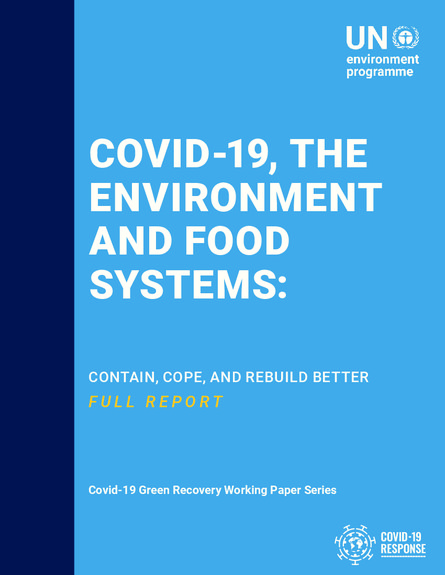
The COVID-19 pandemic is increasing poverty and threatening food security. Governments around the world have already invested more than $12 trillion to counteract the economic effects of COVID-19. This investment could contribute to progress on the Sustainable Development Goals (SDGs), but initial analysis indicates that investments for economic recovery do not sufficiently address food security and sustainability, concentrating instead on immediate economic concerns.
This paper analyzes impacts from COVID-19 at the nexus of food systems and the environment. It proposes ways for governments and international agencies to mitigate these impacts and promote the resilience and sustainability of food systems through policies and investments that
(i) account for environmental thresholds and trade-offs;
(ii) promote food security and healthy diets;
(iii) enhance and protect rural livelihoods;
(iv) address the inequalities and injustices that have emerged as the world grapples with this unprecedented challenge.
The report is part of a series designed to help countries build back more sustainably from the pandemic. The first report of the series Building a Greener Recovery: Lessons from the Great Recession was launched in October 2020.
Additional Downloads
Links
Resource collections
- Climate emergency
- COVID-19 Response Collection
- Innovation
- Learning from crises
- UN Habitat - Urban Response Collection
- Urban Response - Urban Crisis Preparedness and Risk Reduction
- Urban Response Collection - Community Engagement and Social Cohesion
- Urban Response Collection - Economic Recovery
- Urban Response Collection - Environment and Climate Change
- Urban Response Collection - Housing, Land and Property
- Urban Response Collection - Urban Crisis Response, Recovery and Reconstruction
- Urban Response Collection - Urban Resilience